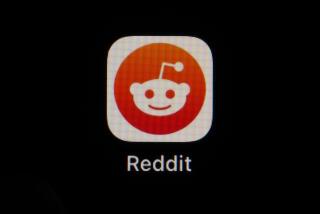MasterCard’s IPO Disrupted by Illness
- Share via
MasterCard Inc., the nation’s second-largest credit card brand, said Thursday it would postpone its initial public offering until the second quarter as its chief executive recovers from surgery for prostate cancer.
The company had been expected to list on the New York Stock Exchange during the first quarter.
However, MasterCard said President and CEO Bob Selander recently was diagnosed with the cancer, which would have made touting the IPO in an investor road show difficult.
The IPO was expected to raise about $2.5 billion for Purchase, N.Y.-based MasterCard. The offering is expected to be the largest since August 2004, when Internet search leader Google Inc. was listed on Nasdaq.
Selander said in a letter sent to the Securities and Exchange Commission that his operation was successful and his “prognosis excellent.”
He said he is currently working from home, and expects to be back in the office in early March.
Eric Grover, an analyst with corporate consulting firm Intrepid Ventures, said the postponement made sense because the road show process can be physically taxing. Grover said it also cleared up speculation bandied about Wall Street earlier this month that the IPO might be in trouble.
In other IPO news, Burger King’s parent company said Thursday that it expected to raise up to $400 million in an initial public offering.
Burger King Holdings Inc. didn’t specify a per-share price, what portion of the company’s shares would be offered or when the IPO would take place, according to a copy of the registration statement to the SEC.
An unspecified part of the proceeds would be used to repay debt, including loans taken out to pay the chain’s owners a $367-million dividend. The filing also showed the owner and insiders were being paid a $30-million fee and $33 million for options and restricted stock -- bringing their total cash payout to $430 million.
More to Read
Inside the business of entertainment
The Wide Shot brings you news, analysis and insights on everything from streaming wars to production — and what it all means for the future.
You may occasionally receive promotional content from the Los Angeles Times.









